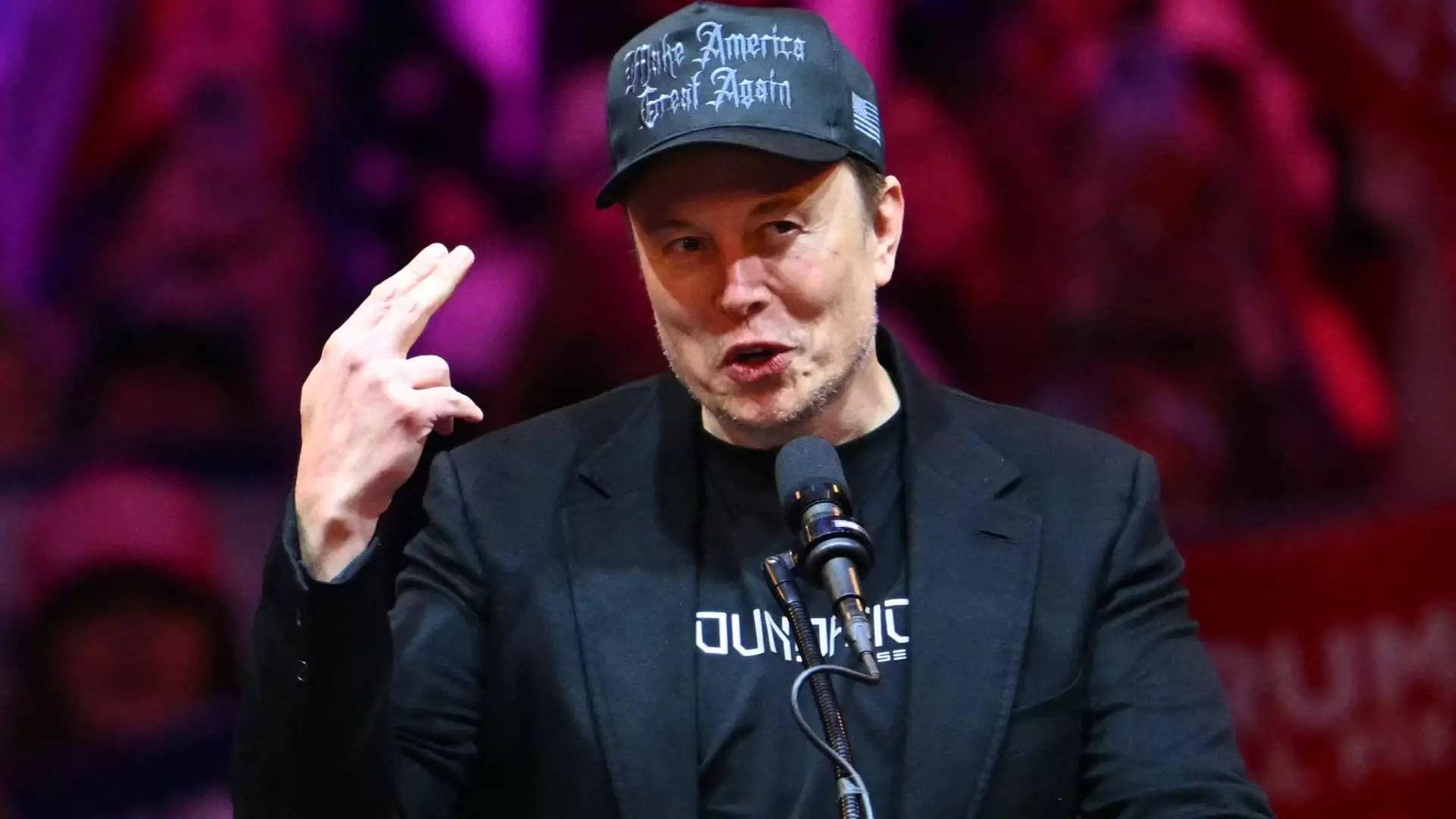The economic proposals put forth by former President Donald Trump have rekindled debates among economists and political analysts alike. While many acknowledge that his fiscal strategies could lead to immediate price hikes for consumers, supporters argue that such sacrifices are merely temporary, paving the way for a stronger economic future. This article examines the perspectives of Trump’s allies and critics to understand the potential ramifications of his policies on the American economy.
One of the most contentious aspects of Trump’s policy framework is his plan to impose universal tariffs on imports, particularly targeting products from China. Critics predict that these tariffs could act as a “Trump sales tax,” leading to accelerated inflation and an increase in the federal deficit. Even prominent figures among Trump’s supporters, such as Elon Musk and Howard Lutnick, have recognized the likelihood that immediate consumer prices would rise as a result. Musk’s agreement with a social media post highlighted industry concerns that these policies could trigger a severe overreaction in financial markets, leading to short-term instability.
Lutnick’s remarks during a CNBC interview reflect a tangible acknowledgment of economic realities: “If I raise the tariff on just this particular idiosyncratic product, yes, right, it will be more expensive.” This admission implies that tariffs, far from being a cure-all for the economy, may risk making certain goods unaffordable for many households. While the intent behind encouraging domestic purchasing is evident, the lack of available alternatives in the U.S. market exacerbates this concern. The economic landscape could witness a scenario where products that American consumers rely upon become significantly more expensive or altogether inaccessible due to a lack of domestic production.
Despite the inherent risks associated with unjustified tariff impositions, Trump’s allies maintain an unwavering belief in the potential for long-term economic advancement. JD Vance, Trump’s running mate and Ohio senator, highlighted a controversial argument: “Anything that you lose on the tariff from the perspective of the consumer, you gain in higher wages.” Vance’s assertion suggests that the economic benefit to workers will outweigh the immediate financial burden on consumers.
This perspective, however, raises critical questions about the timing and feasibility of wage growth in tandem with rising consumer prices. Would higher wages indeed materialize quickly enough to offset enhanced living costs? Furthermore, who will bear the brunt of these price increases in the interim? There is a risk that the benefits touted by Trump’s supporters could take longer to realize, creating a protracted period of economic strain for the average citizen.
In the face of opposition, there is a noticeable shift in tactics among Trump’s allies. Rather than refuting criticism outright, they are framing it as a necessary trade-off. Brian Hughes, a senior advisor for Trump’s campaign, articulated this approach in stating, “The only pain facing Americans would be four more years of Kamala’s failed economic policies.” This strategy not only redirects attention from the economic implications of Trump’s own proposals but also attempts to galvanize support by presenting a binary choice between the two candidates.
However, this tactic inherently assumes that the Democratic economic policies, represented by Vice President Kamala Harris, have universally failed. In light of ongoing economic recovery efforts and stabilization policies, the dismissive nature of this claim may not resonate with all constituents. The implication is that voters need to weigh both short-term inconveniences and long-term promises amidst a complex political and economic landscape.
The economic ramifications of Trump’s proposed policies present a multifaceted dilemma. While advocates like Musk and Lutnick acknowledge the likelihood of immediate consumer price increases, they argue for the potential long-term benefits that higher domestic wages may bring. This balancing act raises vital questions about the sustainability of such policies and their true impact on American households.
Consumers could face a delicate tightrope walk between navigating higher prices and waiting for prospective economic benefits to materialize. As the political landscape unfolds and the 2024 election approaches, it will be crucial for both voters and policymakers to scrutinize the economic implications of these policies critically. Only then can they make informed choices that truly reflect the best path forward for the American economy.


Leave a Reply